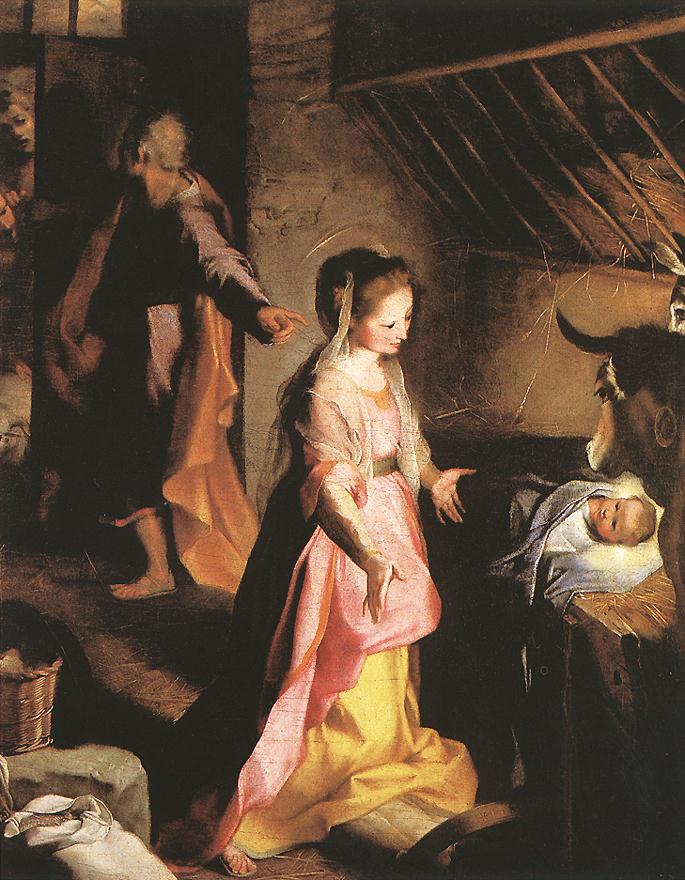
Cries from the Manger: What do they mean?
Blessed are you when people revile you and persecute you and utter all kinds of evil against you falsely on my account. Rejoice and be glad, for your reward is great in heaven, for in the same way they persecuted the prophets who were before you (Matthew 5:11-12).
What does Christmas mean to you this season? I hope it means gratitude, a time of giving and receiving gifts, not only material ones, but gifts of time and attention. I hope it means love, a time of reconnecting after a year of projects that keep us on the move or engaged where we are. And I hope it means hope itself, a time to notice signs that despite all the bad news, the good news remains true and God remains with us, Immanuel.
Yet, embedded in that conviction that God is with us in Christ, we receive a blessing seldom acknowledged.
Imagine yourself as one of the wise men or shepherds visiting the manger. Either through mystic arts or the visitation of angels, you know that the apparently normal infant in that manger is extraordinary.
Reflect on your deepest hopes for shalom, the fullest kind of peace in which all live safely as family, as children of God. Perhaps until now you dared not think much of such peace, it seemed so remote, so unrealistic. But something about this night, the stars, the creatures, the signs — something about this child about whom all things seem to revolve awakens that hope for shalom. And you are deeply glad.
St. John of the Cross, the 16th century Spanish mystic, imagined that scene in a series of ballads on the incarnation. He played out the drama of the Father loving the Son and choosing for his Son a bride, humanity. Just as the love between Father and Son makes their affinity grow, so does the love between Son and the bride increase her affinity with Father and Son. But to reach her, the Son lovingly chose to become human.
So John of the Cross has the the Son as Bridegroom take one step to meet his bride, and in the next, he arrives in the manger, Mary’s infant Son. And what did Mary behold? Her baby, crying:
God there in the manger
cried and moaned;
and these tears were jewels
the bride brought to the wedding.
The Mother gazed in sheer wonder
on such an exchange:
in God, man’s weeping,
and in man, gladness,
to the one and the other
things usually so strange.”[1]
When Good Friday comes, we will remember how the Son suffered the utmost humiliation and pain, gathering up the worst of our suffering. Often that so overwhelms us that we make the mistake of interpreting the cross as God’s way of telling us not to complain since we suffer so much less.
But Immanuel, God with us, came to suffer with us. Yes, he gathered up all our suffering in his on Good Friday, but on Christmas we see that the crying baby suffers the ordinary pain of life. If God came as a crying baby nestled in a manger, we suffer no pain too small for God’s concern.
I believe that Christian theologians of old erred badly when they accommodated God to the Greek philosophical doctrine that God must be perfect on abstract philosophical terms. For those terms dictate that suffering entails imperfection, so a perfect God cannot suffer. Yet, neither Christ on the cross nor Christ crying in the manger will conform to that idea. God’s perfection does not conform to an idea but emerges from an action, a force called love. And love suffers on the road to joy.
Whatever your pain, do not repress it in this season. If you must smile or keep silent, do not let the mask define you. At least take off the mask when you pray. Celebrate in this season not only that Christ promises the end of suffering, but that in Christ, the God who has been where you are empathizes with your suffering and shares it with you. Pray without shame, whatever pain you harbor.
Ultimately, why we suffer, why God suffers, and why love suffers, we do not know. But God will lead you through the pain. For you as for Christ, it is a necessary passage to your wedding day with the Father and the Son.
Related Posts
Encouraging Paradoxes of the Dark Night
The Prince of Peace and Us: Who Waits for Whom?
Before Christmas Memories Fade
Privilege and the Compassion Deficit
Jesus on Perfection
[1] Kieran Kavanaugh, OCD, & Otilio Rodriguez, OCD, translators, The Collected Works of St. John of the Cross. (Washington, DC: ICS Publications, 1991), 68.
Image is “Nativity” by Federico Barocci, public domain.


As I remember what I call the Christmas from Hell, I am grateful for your reflection. Ten years ago, I spent Christmas in Southeastern General by my dying mother’s bedside. That memory lives on in me.
Merry Christmas, old friend. May you and your know the best of the season.
Thank you for offering that memory. Hard as it is, I feel confident by the witness you bear with your life today that God suffered with you and lifted you up. Prayers even now that God lifts up your mother’s spirit.